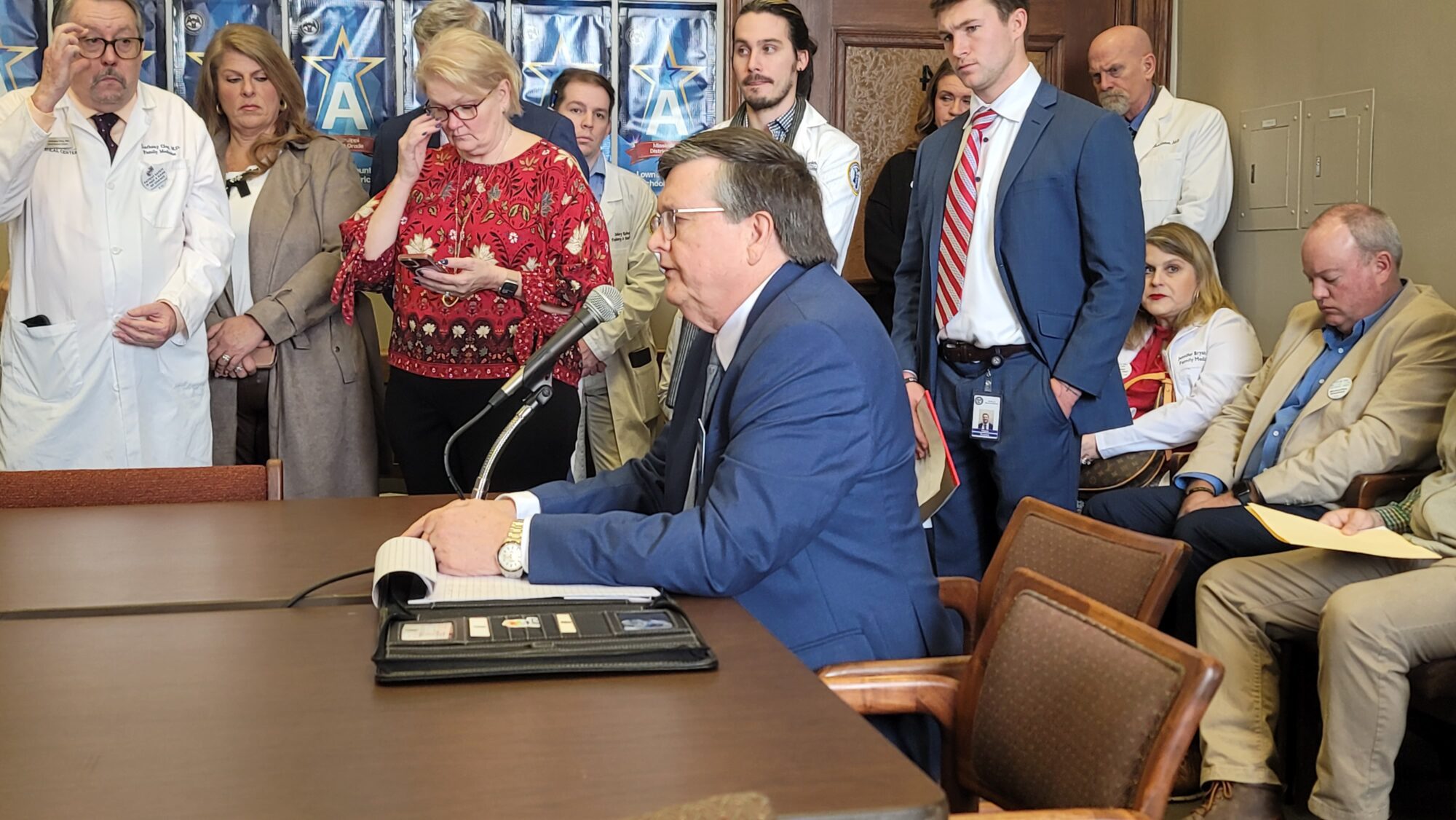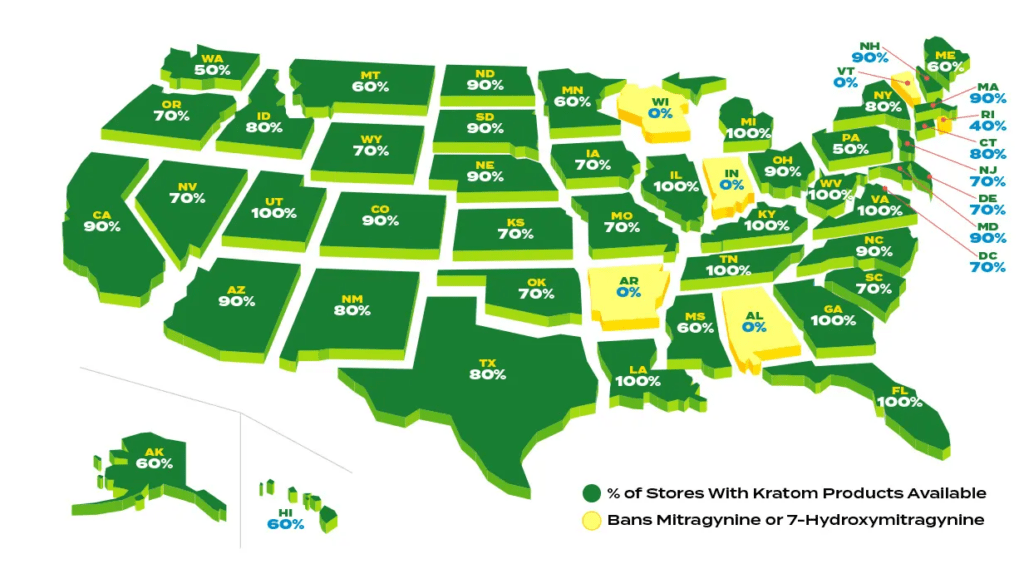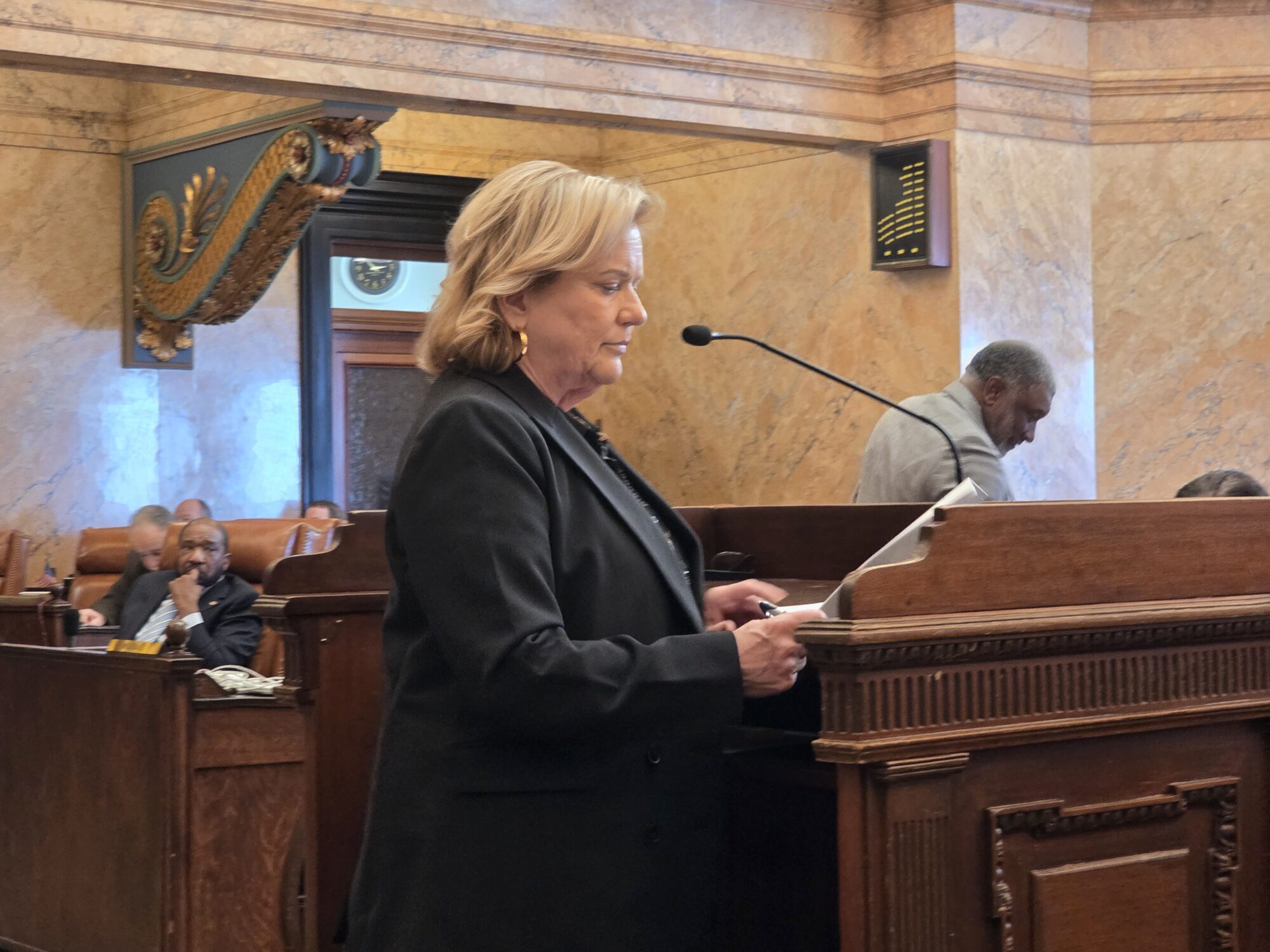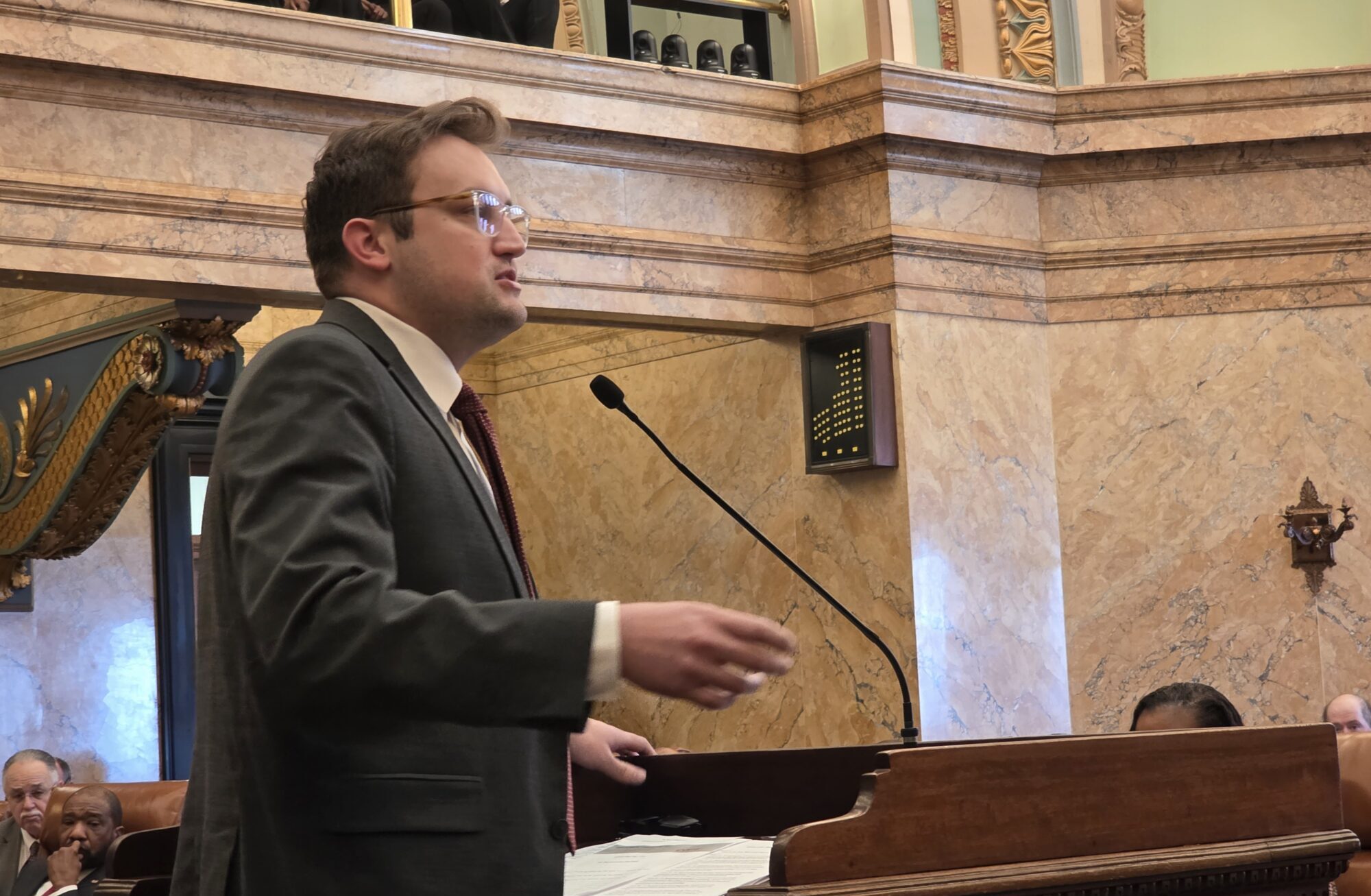House Drug Policy Committee takes action to restrict kratom in Mississippi

Dr. Daniel Edney, State Health Officer, addresses the House of Representatives Drug Policy Committee to outline why Kratom should be a schedule III substance. (Photo by Jeremy Pittari | Magnolia Tribune)
- While advocates claim the herbal substance has opioid-like benefits, state health leaders warn lawmakers of its highly addictive qualities that can lead to fatal overdoses.
The potential dangers from a substance currently found behind the counter of many Mississippi convenience stores is leading health leaders to call for its restriction statewide.
Members of the House Drug Policy Committee heard from state medical leaders and others last week on the effects of the opioid-like herbal substance known as kratom.
The hearing comes as the FDA has warned not to consume the substance over concerns that it is highly addictive. The U.S. Drug Enforcement Administration has also expressed concern over the use of kratom, saying its use can lead to psychotic symptoms, and psychological and physiological dependence.
Drug Policy Committee Chair Stacey Wilkes (R) said she has filed a bill – HB 1121 – to restrict the substance in Mississippi. She told Magnolia Tribune her plan is to educate the committee members about kratom’s dangers before moving the bill forward.
“I wanted everyone to hear some testimony and be educated so we could make educated decisions,” Wilkes said. “This is serious stuff. I know that my community, back home in Pearl River County, we have a big problem with it.”
The legislation has been double referred, meaning it must pass out of the Drug Policy Committee and the Business and Commerce Committee if it is to reach the House floor.
Kratom use and availability in the U.S.
According to a study published in the American Journal of Public Health and shared by the University of Mississippi, nearly three-fourths of tobacco and vape stores in the United States sell kratom.
More than 2 million people in the United States use kratom annually.
As noted by Ole Miss, more than 30 counties and cities in Mississippi have restricted or banned the product.
Rep. Wilkes said that just like other parts of the state, the area she represents in Pearl River County has a number of businesses that not only sell kratom, but that advertise the substance.
“As serious and as much damage as the opioid crisis did in that regard, through prescriptions from a doctor, being able to purchase this stuff just in a quick stop without even having to have a prescription and children being able to get it and it being highly addictive, it’s something we just have to get off our streets,” Wilkes said.
State health leaders express concerns
During the committee meeting, members heard from Dr. Jennifer Bryan, president of the Mississippi State Medical Association, and State Health Officer Dr. Daniel Edney on why classifying kratom as a Schedule III substance is necessary.
Kratom binds to opioid receptors in the human brain, causing those with chronic pain to find relief for a short time, Bryan described. However, the human body’s ability to develop a tolerance to kratom causes users to buy and subsequently use more to get the same effect over time.
Dr. Edney described how the substance’s ability to build in the system causes it to act just like opioids doctors currently prescribe. Kratom’s addictive nature can result in a person, after long enough use, to experience withdrawals.
Regular use of the substance has led to fatal overdoses and emptied bank accounts, the committee was told.
“You can see how quickly the horse has gotten out of the barn,” Bryan added.
Advocates for the substance, such as the American Kratom Association, claim chocolate, coffee, exercise and even human breast milk have a similar effect on brain receptors as does kratom.
“Kratom research and consumer use experience have combined to affirm the value kratom offers as a harm reduction agent in the treatment of acute and chronic pain,” the association stated in a 2021 report on the human and economic impacts of the substance.
The group stated that kratom consumption in the United States is largely beneficial to those who use it.
“There is little justification for government interference with kratom consumption in this country,” AKA stated.
However, while kratom products have been used to ease a person off opioid medications, such as Percocet, some users have found it harder to stop using kratom once they have become addicted to plant’s effects.
Dr. Edney said that since kratom is currently legal, typical drug tests do not look for it in a patient’s system. There are tests that can identify the substance, he said, but they are currently cost prohibitive. Edney added that less expensive strips are now on the market but noted that they are less accurate in detecting the substance.
State health leaders went on to express concern that the increased use of kratom could reverse recent gains made in reducing Mississippi’s opioid crisis. Dr. Bryan added that kratom is taking the place of substances available only through prescription due to its widespread availability.
“This is what the next phase of the opioid crisis looks like,” Bryan said.
Without age limits or a better way to test for the substance, Dr. Edney called for the Legislature to enact change.
“Kratom is aggravating the opioid crisis, there is no doubt about it,” Edney said.
Bryan also cautioned against allowing kratom to be sold within medical cannabis dispensaries.
State Rep. Lee Yancey (R) said that there is no consideration within the House of Representatives to move the substance to a cannabis dispensary, noted that bills addressing kratom are being filed. One such bill that he filed would set an age limit on the purchase of the substance. Yancey said the House’s previous attempts to ban kratom never made it out of the Senate.
Kratom, drug court, and
Consuelo Walley, 18th Judicial Intervention Court Coordinator, told lawmakers that staff with the state’s Intervention Court, formerly referred to as Drug Court, have noticed a correlation between increased kratom use and an uptick in participants being unable to pay their fines and fees despite having a decent paying job.
The Intervention Court program is designed to assist non-violent drug offenders turn their lives around and reduce recidivism. Participants of Intervention Court must agree to submit to regular drug testing, hold a job, and pay their fines and fees, to name a few, as they work through the program in lieu of going to prison.
Through specialized drug testing to specifically look for kratom, Walley said court staff determined some participants were using it to beat the regular drug tests.
Further, even after Intervention Court staff helped the individuals enter treatment, the availability of the substance led to relapses, resulting in prison time.
Kratom’s impact on families, economy
Members of the House Drug Policy Committee also heard from state residents affected by kratom.
In 2019, two days before Christmas, Marie Cochran said her husband passed away due to his kratom addiction. Though he faced challenges with addiction to other substances throughout his life, she said he was able to quit all of them “cold turkey,” except for kratom.
Cochran described her husband as a good father, husband and military man, despite his struggle with addiction. Yet, when he came across kratom, she said his life changed forever, spending close to $50,000 on his kratom addiction in one year alone. She said he lost his teeth, their marriage became strained, and he eventually lost his life.
Eric Cooley, too, shared his experience with the substance, telling lawmakers that he used the substance for about five years. He described the high as being as euphoric as heroin. Cooley said he started using kratom to get off of methamphetamine but soon found that he became sick if he did not use kratom.
The American Kratom Association reported in 2021 that the U.S. kratom industry generates an estimated $1.3 billion in sales and accounted for a total 7,660 jobs, $404.5 million in labor income and contributed a total of $606.2 million to U.S. GDP. In addition, the association claimed that the kratom industry generated a total of $150 million in federal, state and local taxes.
Rep. Wilkes’ legislation passed the House Drug Policy Committee and is awaiting action in the House Business and Commerce Committee.












